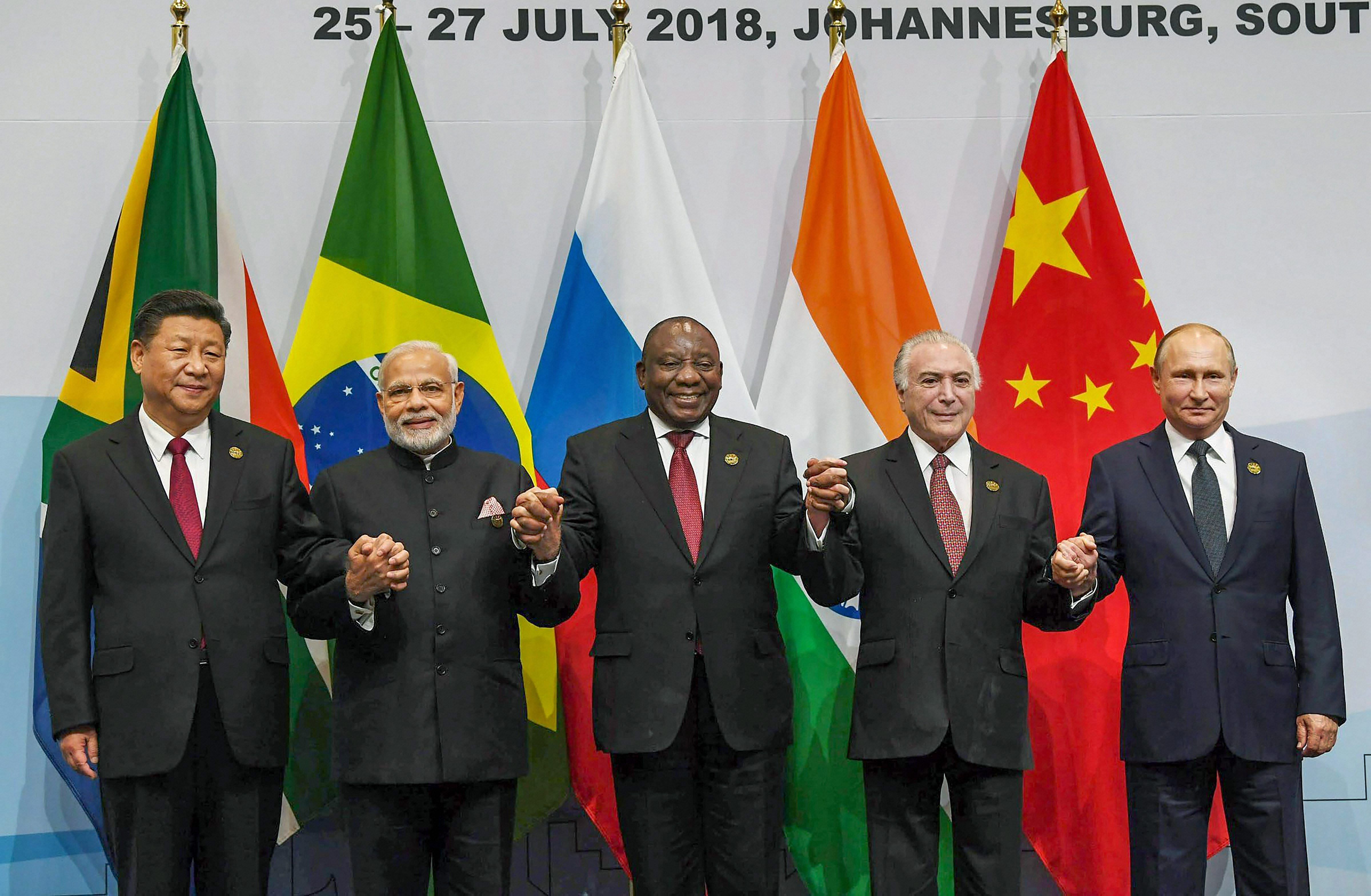The recent visit of Prime Minister Narendra Modi to Africa, primarily to attend the BRICS summit, generated unusual attention on the state of India–Africa relations. Africa as a continent has become crucial not only for trade and commerce but also for maintaining peace and security in the Indian Ocean region (IOR).
India has a long relationship with Africa, but the ties need to be reinvigorated as the importance of the continent has tremendously increased in recent years. Africa is situated at one end of the Indian Ocean which is so critical for world trade and commerce. With the changing global balance of power, once again the struggle for dominance in the Indian Ocean has intensified.
India and Africa share a history of struggle against colonialism and racism. This Indian approach brought it closer to African nations. In the post-Independence phase, India has been happy to share its development experience with African nations. A number of African countries are growing at a remarkable pace, and some assistance from emerging economies like India would help them to realise their potential. Every year, about 8,000 African youths are trained in India. India, itself a developing country, is a strong supporter of South–South Cooperation.
However, despite this background, New Delhi has not been successful in building a major presence in Africa. It gave much attention to its neighbourhood during the Cold War era, but its own development at the time was quite limited. The end of the Cold War and economic liberalisation in India brought significant economic development to the country. Similarly, some African economies are also doing well now. This has enhanced the economic component in ties with Africa.
New opportunities have thus arisen. The growing Indian economy needs new markets. It also needs more energy resources, for which India has been perennially dependent on imports. Though most of India’s energy needs are fulfilled by the Gulf countries, the ample energy resources of Africa could help India diversify its sources of procurement.
India’s bilateral trade with Africa started doing well in 2001 but has started to decline recently. It amounted to about $55 billion in 2017. The balance of trade is in Africa’s favour. Unfortunately, the declining trend is not only in bilateral trade but also in FDI. Indian FDI in Africa in 2016-17 at $14 billion, lower than it was in 2011-12 at $16 billion. Thus, on the investment front, only a few companies are looking at Africa seriously, despite the enthusiasm of the government. India is the only big investor in Africa to have reduced investments. China, on the other hand, increased its investment to a massive $40 billion in 2016-17.
Peace and security
Besides trade, African countries play a vital role in promoting peace and security in the IOR. China’s ambition to play a role in the Indian Ocean and its Belt Road Initiative (BRI) have changed the security environment in the IOR. It has also forced India to look seriously at the security dimension. Though India has been training military officers of African countries in its academies, it had to look for newer ways to intensify the security relationship. With this objective, India signed an MoU with Kenya and defence agreements with Rwanda and Uganda during Modi’s visit.
The issues of terrorism and piracy are also important. Indian Navy is patrolling the waters of eastern and southern Africa to keep the region free from the threats of pirates. India is also trying to create institutional mechanisms where it can cooperate with African nations to enhance security in the Indian Ocean.
The increasing importance of Africa has prompted India to deepen its relationship with the continent. This is reflected in the policy of the Modi government and a number of high level visits have taken place. India is also planning to open 18 new embassies between 2018 and 2021. Since 2008, the India-Africa Forum Summit (IAFS) has become an important institutional mechanism to interact with top leaders of all African countries.
New Delhi is extending financial help to African nations. India’s development partnership currently includes implementation of 180 lines of credit worth about $11 billion in over 40 African countries. In the 2015 IAFS in Delhi, India had committed to a concessional line of credit of $10 billion and $600 million in grant assistance. Even during his latest visit, Prime Minister Modi offered $200 million credit lines each to Rwanda and Uganda. The most important aspect of this cooperation is that India’s efforts are driven by African priorities.
The thrust of the new India–Africa partnership is on the economic relationship. In this, India’s private sector has to play a much more vigorous role. India’s Africa policy seems to be still evolving, but it must take concrete shape before it is too late.
(The writer is a Visiting Professor and Chair (India Studies), Department of Political Science and Public Administration, University of Dar-es-Salaam, Tanzania)
